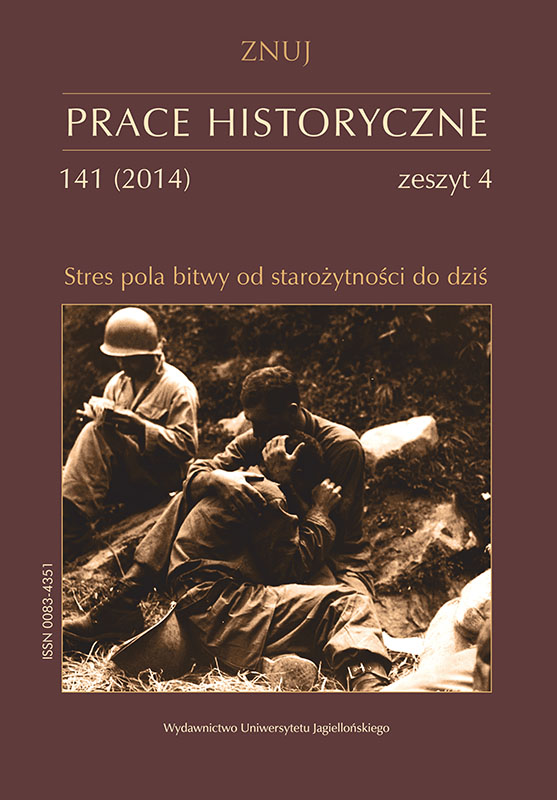Czy czas zawsze leczy rany? Objawy, konsekwencje i odległe następstwa stresu pourazowego
Does time always heal all wounds? Symptoms, consequences and distant effects of post-traumatic stress
Author(s): Jolanta Walczewska, Piotr SłowikSubject(s): History, Military history
Published by: Wydawnictwo Uniwersytetu Jagiellońskiego
Keywords: posttraumatic stress disorder; stress related somatic diseases; cognitive impairment, cardiovascular risk
Summary/Abstract: The modern world is not a peaceful planet. In many places on earth there are still long-term ongoing military conflicts, exposing the huge crowds of soldiers and civilians to the horrors of modern warfare. Survivors retain the effects of these traumatic events in their minds for a long time. The world is not free from many natural disasters that despite impressive growth techniques are still unavoidable and unpredictable. People who have experienced an extremely traumatic event – participants of wars, survivors of concentration camps, prisoners of war, experiencing life-threatening symptoms, victims of assault, rape, domestic violence, victims of traffic accidents, as well as victims of natural disasters (earthquakes, fires) for many years, sometimes till the end of their lives experience severe consequences of these traumatic events. Post-traumatic stress disorder (PTSD) involves a group of symptoms such as intrusive reminders of trauma, symptoms of depression and anxiety, loss of initiative, lack of perspective on life, social withdrawal, symptoms of uncontrolled arousal. In such groups, more likely than in those without PTSD, one is likely to come across somatic disorders, such as coronary heart disease, hypertension, glucose and lipid abnormalities, substance abuse.
Journal: Prace Historyczne
- Issue Year: 141/2014
- Issue No: 4
- Page Range: 911-924
- Page Count: 14
- Language: Polish

